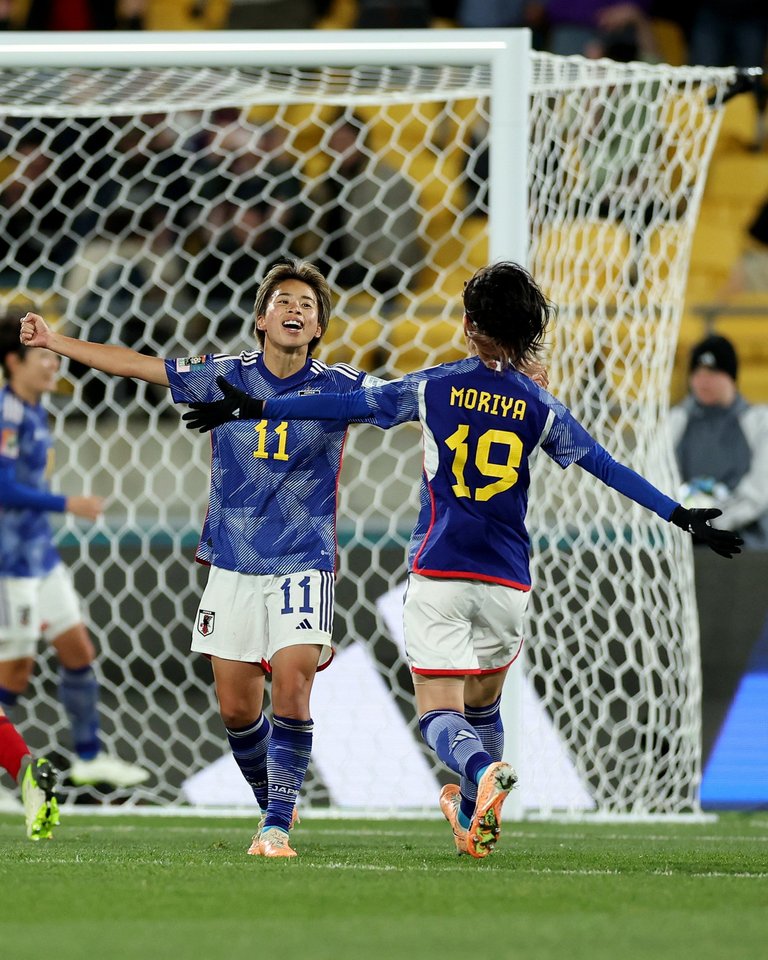The match between Spain and Japan was a real challenge for the Spanish national team. Although Spain did not lose their identity on the field, they did lose their composure against a very astute Japan, who simply denied space and passing lanes with a well-organized defense to counter-attack. And what counter-attacks they were. Japan executed hypersonic runs with malice aforethought, clubbing the Spanish team off balance. It was a slap in the face of reality for Vilda's team, which up to that point had played against lower-caliber opponents like Costa Rica and Zambia.
The match was crucial to define the group leader and the result was expected to provide a diagnosis of La Roja's real chances in the World Cup. But what seemed to be gold turned out to be pyrite, an unexpected blow that resulted in four goals against. However, there is still time to recover and explain that you can always have a bad day, and that Spain has plenty of soccer to go forward in the tournament.
Early on, the day did not promise good news: a leaden sky of dense clouds, inclement rain and a gusty wind shook the city of Wellington, which was still reeling from a 4.3 magnitude earthquake the night before. Buildings were shaking and there was a certain fear in the air, but none like the fear Japan conveyed with its on-field strategy. With a 5-4-1 defensive formation that morphed into a 3-4-3 attacking formation, the Japanese team stood out with their counter-attacking play, running at full speed after the ball and leaving Spain disoriented. And it worked wonders for them, as they were able to blur and dismantle the Spanish team with only 23% of the possession. In fact, since Opta began keeping records in 2011, no team has won a match in a women's World Cup with less possession than Japan in this match.
Monday's match in Wellington was a challenge for the Spanish national team, as their opponents, entrenched in a five-meter defense, looked like a granite block with no cracks in sight. Spain needed to move the ball with diligence and precision to find depth in their play, but they struggled mightily. Despite having possession of the ball, their play was short-circuited in the three-quarter area, as they did not generate superiority on the wings and the inside players had no space to receive or pass the ball between the lines. It was a mess for Spain, who could not find the road map to penetrate their rival's defense.
Although there were moments of brilliance from Spain, such as Aitana's break from the second line that almost ended in a goal after a cross from Mariona, overall the team failed to find a way past the opposing defense. As Aitana explained, you don't stay in the box, you get there, but Spain failed to get there often enough to put the finishing touches on a game that slipped through their fingers.
Japan were just as happy to play in their own area, safe in their own box, because Spain were unable to score in either their own or their opponents' penalty area. This was partly due to the fact that the backline was always brave and took the usual risks, which was their downfall, especially after the loss of Ivana. All these mistakes were penalized by an opponent who knew exactly what they were playing at, and only two passes were enough to dismantle the opposing defense. An example of this was Naomoto's cross from the root, control and deep pass for Miyawaza's diagonal run past Rocio Galvez to beat Misa with a shot into the net.
This goal was a blow to Spain and a great relief for Japan, who suddenly had the game where they wanted it, leading on the scoreboard and without the need to take offensive risks. Instead, Japan dug in close to their own area to disrupt Spain's soccer and secure their lead, without needing to advance into the opposition half.
The Spanish team stumbled several times on the same stone, allowing Japan to score two goals on consecutive counterattacks that exposed Rocio Galvez, who failed to close the line or the spaces, was poorly positioned, slow to correct and unable to stop the runs of the opposing players. Ueki made it clear with an unmarked run, a control and a shot that Paredes touched, but not enough to deflect the ball: another goal for Japan. But Spain's nightmare was not over; after losing the ball, Miyawaza again made a diagonal run, received the ball and scored in front of Misa. Three successive goals like three rising suns in the interval. Japan in the sky and Spain disoriented.
The Spanish national team tried to pull themselves together, open their wings and look for superiority on the flanks - like Ona's run that ended with a one-two with Mariona and a shot that went just wide - and put in crosses in search of Jenni Hermoso, who struggled unsuccessfully for possession. But there was no way to dismantle a Japan side that continued to carry out its plan to the letter, and was also happy that Alexia was already on the bench without having managed to make a difference in the match.
Spain played with the intention of winning, but ended up getting lost in their own game, barren in possession, disoriented in the face of their opponents' intensity and fractured in the face of quick counter-attacks, as demonstrated once again when Tanaka took advantage of Rocio Galvez's weakness to score another goal. This is not the end, but a warning that soccer is not won without quick passes, precise controls, depth, accurate finishing and, above all, without dominating the areas.
